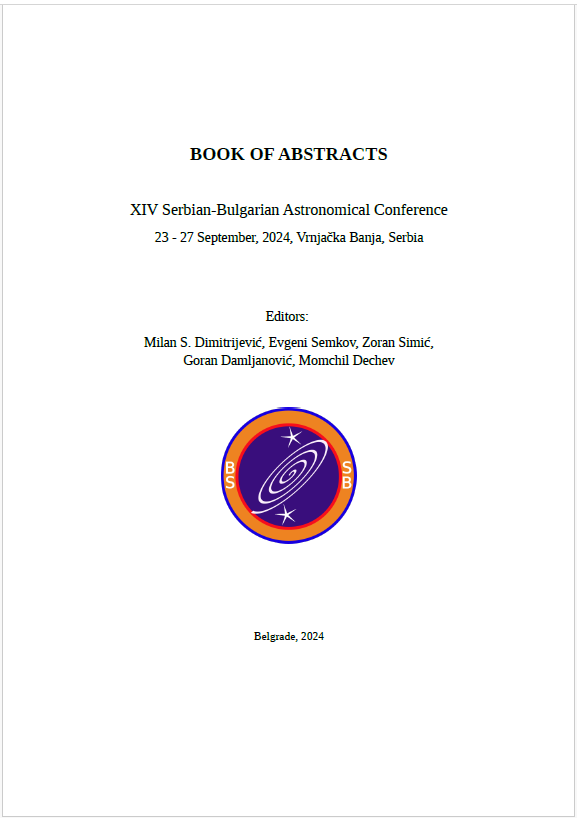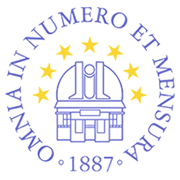SCIENTIFIC WORK OF SERBIAN ASTRONOMERS AND METEOROLOGISTS AND THEIR SCIENTIFIC COLLABORATION DURING THE FIRST WORLD WAR
Natalija Janc , Milivoj B. Gavrilov and Luka Č. Popović
, Milivoj B. Gavrilov and Luka Č. Popović
Publication
BOOK OF ABSTRACTS: XIV Serbian-Bulgarian Astronomical Conference, Page 20-21, https://doi.org/10.69646/14sbac18a
BOOK OF ABSTRACTS: XIV Serbian-Bulgarian Astronomical Conference, 23 - 27 September, 2024, Vrnjačka Banja, Serbia. Editors: Milan S. Dimitrijević, Evgeni Semkov, Zoran Simić, Goran Damljanović, Momchil Dechev
Published: 17. 11. 2024.
Abstract
The First World War (WWI) did not spare scientists, university professors and students either. Nevertheless, even in such conditions, most of them did not lose their desire for scientific creation, they found the strength and will to engage in scientific research, professional work, to write publications, organize lectures, etc., and make contributions in the field of astronomy and meteorology connected with the Balkan Peninsula.
Milutin Milanković (1879-1958) spent the war years in the Library of the Hungarian Academy of Science in Budapest, where he wrote his scientific work "Mathematical theory of thermal phenomena caused by solar radiation," which was published immediately after the end of WWI. The work attracted the attention of Wladimir Köppen (1846-1940) and Alfred Wegener (1880- 1930), and the three scientists soon became close collaborators. During the war, in 1915, Alfred Wegener was able to complete the first version of his major work "The Origin of Continents and Oceans." In Sofia he worked together with the Bulgarian Meteorological Institute to provide weather forecasts throughout the Balkan Peninsula. Erich Kuhlbrodt (1891-1972), a German meteorologist, also worked with Alfred Wegener. He earned his PhD with thesis under the title "Climatology of Macedonia, A contribution to the study of climate of the Balkan Peninsula".
Astronomer Milan Nedeljković (1857-1950), the founder (1887) and director of the Astronomical and Meteorological Observatory in Belgrade, stayed there until the last moment, when he had to retreat in 1916 with the Serbian army. During the WWI occupation of Belgrade, the staff of the Observatory consisted of members of the Austro-Hungarian army. The director of the Observatory was the university professor of meteorology Viktor Conrad (1876-1962), who during and after the war published several publications on the climate of Serbia and the Balkan Peninsula. Professor Pavle Vujević (1881-1966), director of the Meteorological Observatory since 1924, used those resources for his work. Vujević also participated in WWI, as a sergeant in the Serbian army; he retreated through Albania. Astronomer Vojislav Mišković(1892 -1976) went through the calvary of the retreat of the Serbian army at a very young age. Immediately after the war, he studied and earned his doctorate in France. After returning to Belgrade, he got a position at the University of Belgrade and became the director of the Astronomical Observatory.




